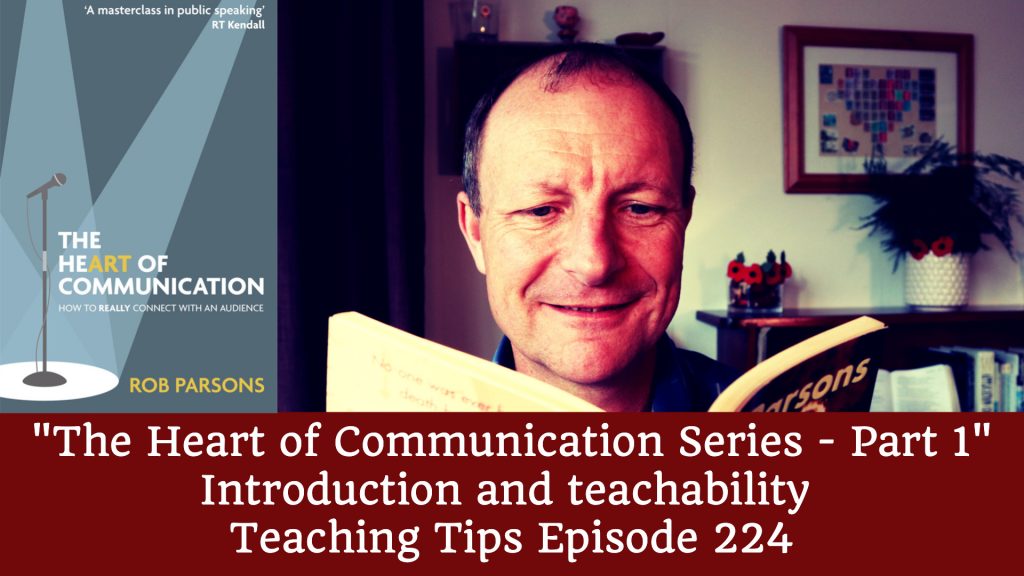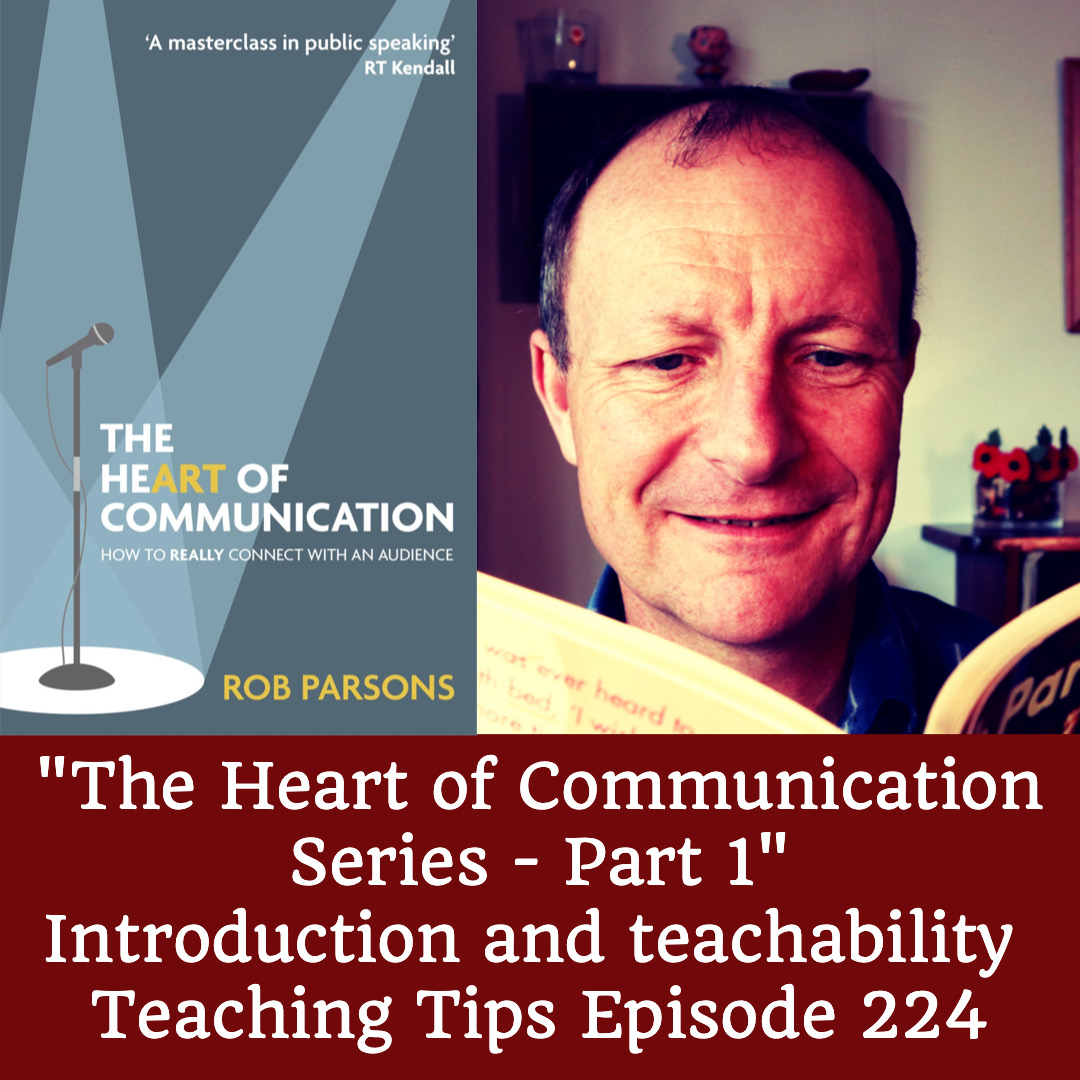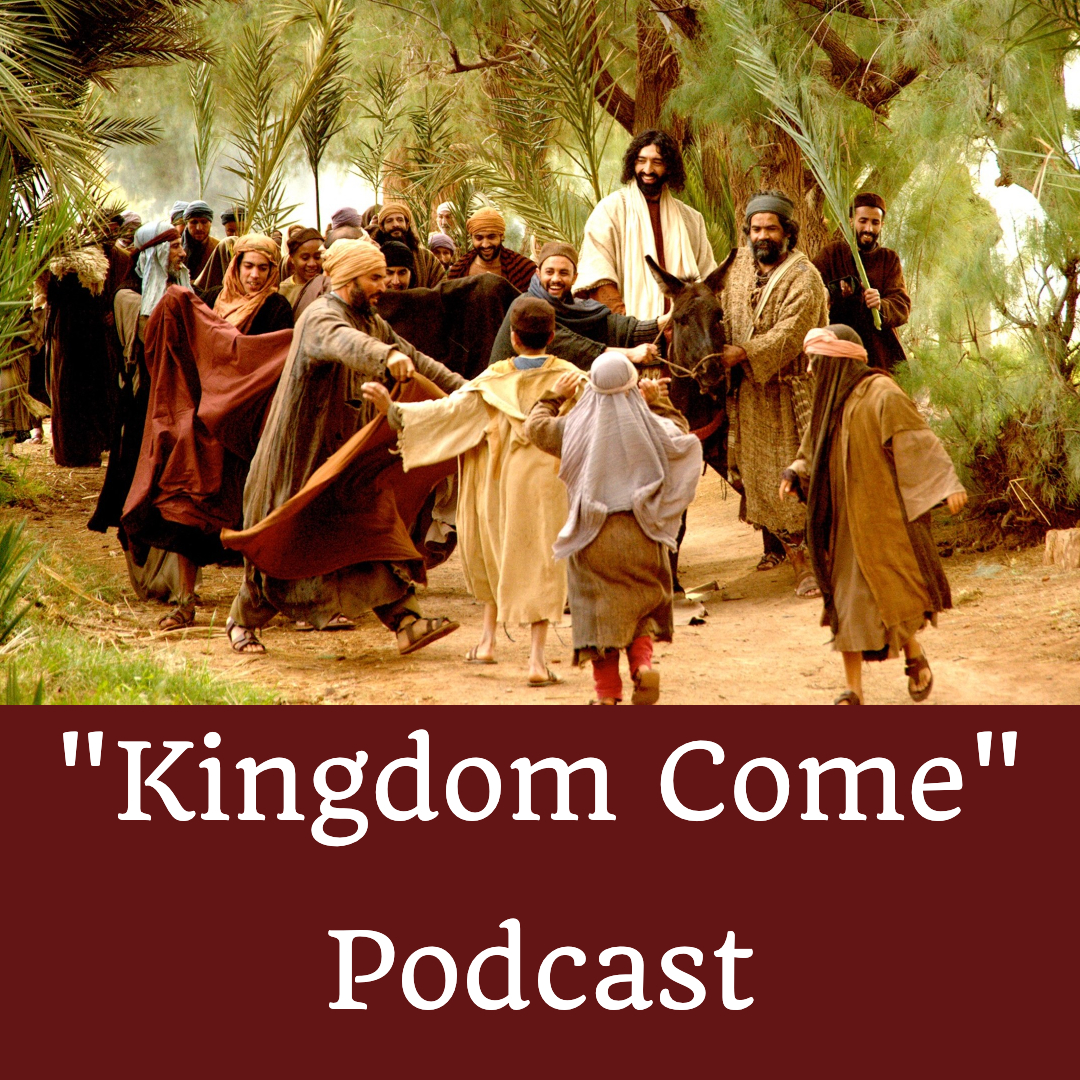Introduction and Teachability
Tuesday Teaching Tips: Episode 224

Introduction
“All the great speakers were bad speakers at first.” Ralph Waldo Emerson
- Today we are beginning a new series based on the book “The heart of communication: How to really connect with an audience” by Rob Parsons.
- In my “What we’re reading” series I reviewed the full book (look for episode 49). In this series of “Tuesday Teaching Tips” we’re going to take a bite-size look at each of his chapters to see what might be relevant for us.
- Each chapter is short, but not lacking significance. Parsons deftly combines depth with brevity.
- We will begin with an attitude rather than a practical. Something fundamental to the book, but also, I believe, to what it means to be an affective speaker.
Teachability
“..if I had to single out one characteristic of those who are the most effective communicators – whether they are addressing audiences of thousands or speaking to seminars of twelve – it would be this: they are teachable.” Parsons, Rob. The Heart of Communication: How to really connect with an audience . John Murray Press. Kindle Edition.
- I think it’s safe to say that most people would consider me to be a reasonably accomplished speaker these days. But it was not always thus.
- My first public speaking experience was in a school debate. It was humiliating. I had no idea what I was talking about, no idea how to present, and spent the entire time sweating and blushing.
- My second experience was a five minute “lesson” at a Wednesday night class at church. My mouth was dry, I stared at my notes and made no eye contact, I had stomachache for several days.
- One more. My third experience was sharing a sermon with my good friend Stephen Arthur Allen. It was in front of, probably, 1000 people. Although I was excited about the opportunity, I was terrified by the experience. “This is not for me” was what I was thinking, and probably so were the audience!
- However, fast forward 30 years and most of the time I manage to avoid boring people. Some even say I’m quite good. I am confident this is not simply down to latent talent. It’s a product of a combination of practice, conviction, good mentors, reading, plenty of opportunity, and boatloads of feedback.
- Rob quotes Sir Alex Ferguson who,
having watched and trained some of the most gifted footballers in the world…said, ‘Hard work will always overcome natural talent when talent does not work hard enough.’
- As we begin the series, let me ask a question: “Who are you learning from?” “Who are your teachers?”
- Ever so slightly tangentially, let me offer you an example of Apollos. Someone who “had been instructed in the way of the Lord, and he spoke with great fervour and taught about Jesus accurately,” (Acts 18:25 NIV11)
- Yet even he needed someone to teach him further.
“When Priscilla and Aquila heard him, they invited him to their home and explained to him the way of God more adequately.” (Acts 18:26 NIV11)
- It seems that what he needed teaching on was doctrine perhaps more than the way to communicate. But the point remains that even someone who already had significant training, was open-minded enough to listen to others and grow.
- What was the result?
“When he arrived, he was a great help to those who by grace had believed.” (Acts 18:27 NIV11)
Conclusion
- In this series I hope and pray that as I bring thoughts from the book they might help you and I both to grow in our effectiveness to not only speak, to make sense, to say things that are true, but to really connect.
- As Rob says, “connection is the very heart of communication.” Jesus was the master communicator at least in part because he was also the master connector.
- Over the next few weeks we will look at principles and practical is to help us become consummate connectors.
Questions: “Who is your teacher? In what way do you sense you could grow in your ability to connect with those to whom you speak?”
Please add your comments on this week’s topic. We learn best when we learn in community.
Do you have a question about teaching the Bible? Is it theological, technical, practical? Send me your questions or suggestions. Here’s the email: malcolm@malcolmcox.org.
If you’d like a copy of my free eBook on spiritual disciplines, “How God grows His people”, sign up at my website: http://www.malcolmcox.org.
Please pass the link on, subscribe, leave a review.
“Worship the LORD with gladness; come before him with joyful songs.” (Psalms 100:2 NIV11)
God bless, Malcolm
PS: You might also be interested in my book: “An elephant’s swimming pool”, a devotional look at the Gospel of John


